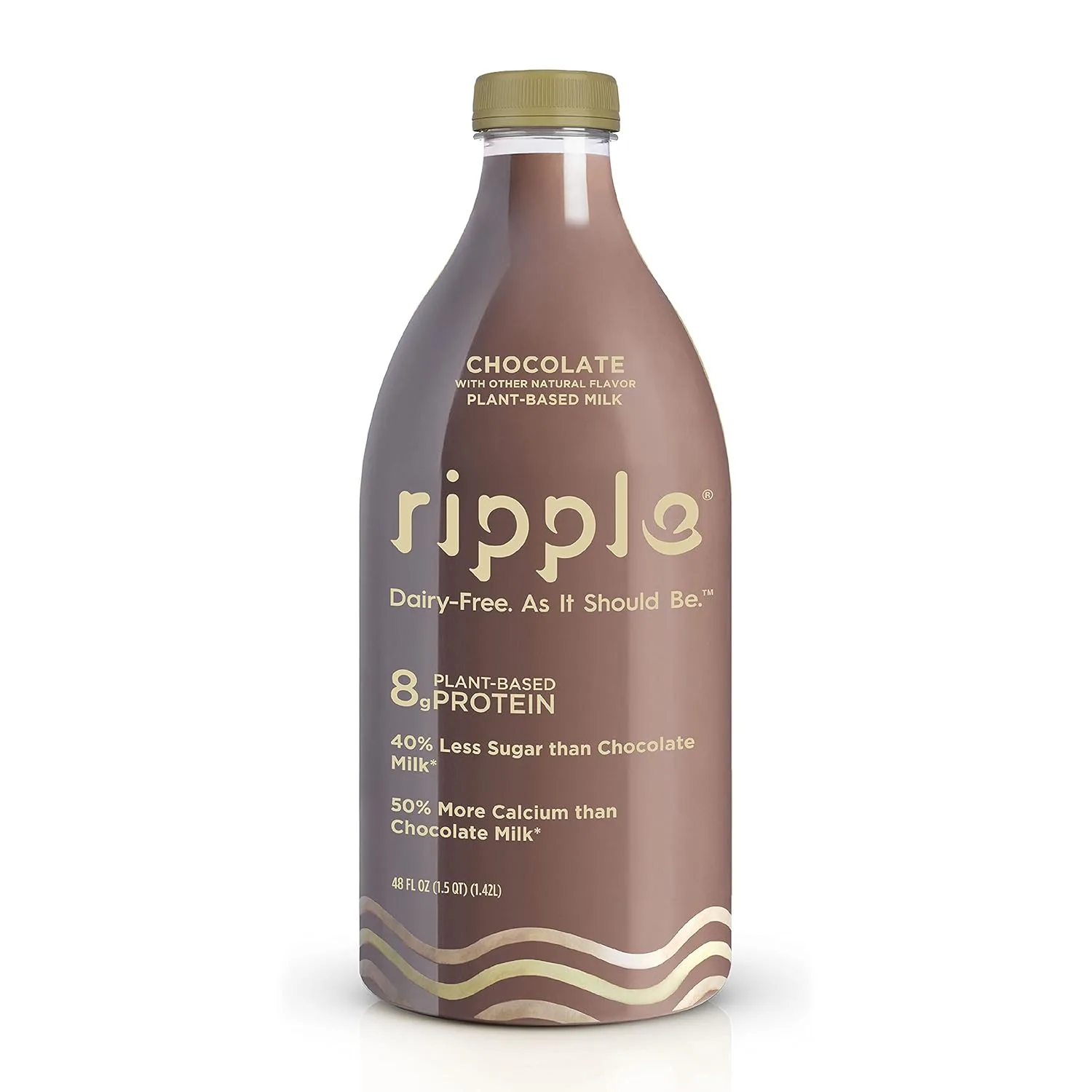ripple® CHOCOLATE with other natural flavor PLANT-BASED MILK
food & drinks • For 6-12 month old babies • Consumable 🍝
Product Images
Product Photo

Tap to enlarge
Ingredient List

Tap to enlarge
Can older babies eat ripple® CHOCOLATE with other natural flavor PLANT-BASED MILK?
Check for Different Age (6 available)
Ingredients Analysis (15 found)













Common Questions About ripple® CHOCOLATE with other natural flavor PLANT-BASED MILK
Safe for older babies? ripple® CHOCOLATE with other natural flavor PLANT-BASED MILK
ripple® CHOCOLATE with other natural flavor PLANT-BASED MILK is not recommended for 6-12 month old babies due to potentially harmful ingredients.
What ingredients should I watch out for?
We analyzed 15 ingredients in ripple® CHOCOLATE with other natural flavor PLANT-BASED MILK. 3 caution. Check the detailed analysis above for specific concerns.
Is this appropriate for older babies to eating food & drinks?
The appropriate age depends on the specific ingredients. This analysis is for 6-12 month old babies. Use the age selector above to check other ages.
⚠️ Important Disclaimers
Product Recognition: Product names are identified programatically and may be incorrect. Always verify product identity yourself.
Safety Analysis: Evaluations are for research only - consult pediatricians for medical decisions. Do not rely solely on this analysis.
No Guarantees: Results may be incomplete or inaccurate. Do not rely solely on this analysis.